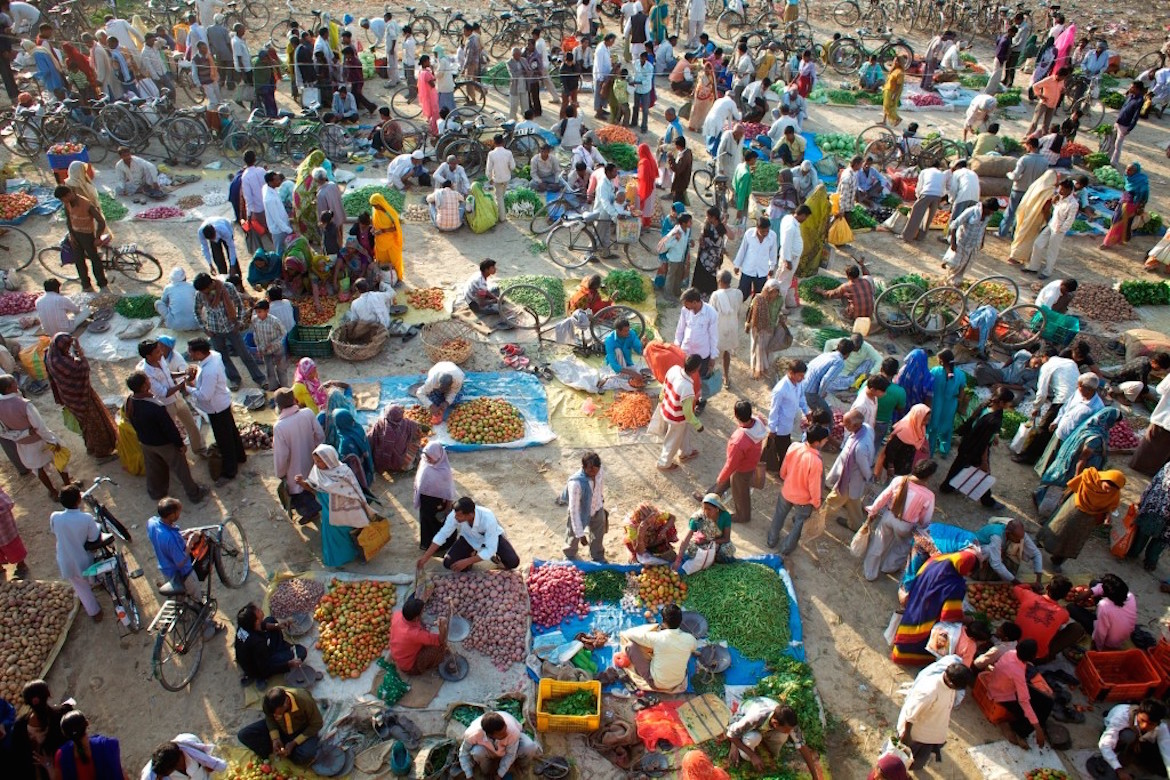Based on Vijay Mahajan’s essay ‘A Retrospective Overview of Social Action in India: 1817-2017’, this three minute video gives you a brief history of social action in India. Watch it here, or scroll down for the slideshow.
Social action is an aggregation of efforts by various individuals to address what they see as the social problems of their times. Thus, before we think about the future of social action in India for the next 30 years, we need to think more fundamentally about our role as individuals in society.
Unfortunately, the overwhelming concerns for survival and securing livelihoods, and the growing influence of market institutions have converted most relationships between individuals into mere transactions. We have reduced ourselves to producers and consumers, sellers and buyers. The interactional aspect of relationships has taken a back seat.
Today, a citizen is nothing more than the relationship they hold with the state.
On the other hand, the rise of the state—including its encroachment on essentially social sectors such as health and education in the name of welfare—has reduced the definition of the word ‘citizen’. Today, a citizen is nothing more than the relationship they hold with the state. In a recent speech, Rajesh Tandon, founder of Participatory Research in Asia (PRIA), argued that we need to broaden the concept of citizenship from being a vertical relationship between the individual and the state, to numerous horizontal relationships among individuals.
The third level at which people relate is one that encompasses the natural world or environment, as well as the spiritual—the need to find meaning and purpose in our daily lives.
Therefore, an individual who is not only engaged in transactions and interactions, but has humane relationships with others, cares for nature, and cultivates their spiritual side is more evolved than the mere producer-consumer archetype.
The central challenge of the 21st century then, is to build robust eco-social action-oriented institutions that can nurture such individuals across income, caste, and class levels.
These eco-social instituions (ESIs) are therefore civil society organisations of the future; they focus on changing environmental and social norms—critical for the future of the planet.
Related article: Amitabh Behar on the changing nature of civil society today
The role of eco-social institutions
There are at least six reasons to build robust eco-social institutions.
- ESIs promote diversity and pluralism. They are like bio-diversity reserves for preserving a vast variety of ideas and beliefs, necessary for the survival and evolution of humanity.
- They serve as incubators for innovative approaches to resolve problems, which neither the state nor the market have been able to crack.
- They can act as ‘practice fields’ for democracy, where people form numerous neighbourhood groups and wider social associations to address a number of needs and issues. These collectives provide them the practice for political democracy.
- ESIs can act as early warning mechanisms that are able to detect and amplify anxieties on the ground, among the people, and alert society, the state and the market to take corrective action.
- They play a balancing role between the state and market institutions and are essential for ‘restoring sanity’ whenever either of these crosses a line. ESIs can influence political change and enable pro-consumer and pro-environment laws to control market players.
- Finally, they are focused on enhancing the overall well-being of all people. Market institutions are designed for maximising profits, while state institutions are designed for maximising power, control, or order.
Eco-social institutions therefore have a huge responsibility to work at the normative level, that is, establishing principles of what is widely accepted as desirable for the long term good of individuals in a society. This is partly because governments have ripped the normative fabric of society in the name of social good.

The growing influence of market institutions has converted most relationships between individuals into mere transactions | Photo courtesy: Oxfam India
We need a normative vision that will ensure liberty of life and basic freedoms.
We need a normative vision that will ensure liberty of life and basic freedoms—of expression, belief, occupation and association, a safe and clean habitat, with a minimum level of health, education, economic opportunity, political representation, and cultural self-expression for all.
The state as well as market institutions have failed to offer these to us. It is time that ESIs step in and influence both the state and the market. If the 21st century has to avoid the folly of the reassertion of the state in response to the excesses of the market, ESIs need to be strengthened, as a balancing force between the state and market institutions.
Using eco-social institutions to influence the state
In order to provide primacy to ESIs, several constitutional and legal amendments are required. These would:
- Make the Directive Principles a conjoint responsibility of the state and eco-social institutions by amending Article 38 (1) to read as follows: “The State shall strive, directly as well as by enabling associations of citizens, to promote the welfare of the people…”.
- Establish a permanent national commission on eco-social institutions so that there could be an interface between the state and civil society.
- Advocate that the Finance Commission as well as the State Finance Commissions devolve at least a minimum portion of their tax revenues to ESIs.
- Broaden the ambit of the Comptroller and Auditor General, the Central Vigilance Commission, and the Central/State Information Commissions to cover social institutions. Doing this would bring social institutions at the same level of accountability and transparency as they expect from state institutions.
- Ensure that the Union and the State Public Service Commissions—which are responsible for recruitment of candidates to the various civil services—have at least two members from the social sector to ensure the selection of right people in public service.
Related article: India@70: The anxiety of asymmetry
Using eco-social institutions to influence the market
Business has acquired enormous power to mould and control our lives; it is necessary that businesses and market institutions are influenced by eco-social thinking. To ensure this,
- Companies and regulatory commissions must have at least two board members from the social sector.
- Universities and professional schools must have adequate representation from the social sector on their boards; they must also offer courses on social sector issues.
- At least 50 percent of CSR funds should be given to independent social institutions to undertake various programmes.
- Users and consumers must be organised as a countervailing force against the untrammelled power of large companies.
Building effective institutions for eco-social action
The time has come for individuals to evolve from being passive participants in market institutions—producers and consumers, or passive recipients of state entitlements and welfare services.
To go beyond the control of market and state institutions, individuals imbued with a deep ecological and spiritual consciousness need to come together and form a new generation of eco-social institutions. Inspiration, leadership, legitimacy and resources are crucial for making ESIs more effective. Each of these can be and will have to be developed systematically to make such institutions more responsive, participatory, efficient, accountable and transparent.
—




